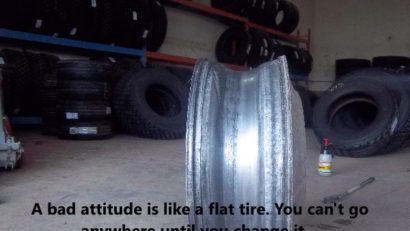- SEEM-Safe Efficient Ethical Moral
- LUCK – Labouring Under Correct Knowledge
- Truck Driving Safety
- Bending The Rule
- Practical wisdom and Prudent driving
- Balancing Confidence and Caution
Practical wisdom and prudent driving go hand in hand. so this is where we take a philosophical approach to making professional driving a virtue. The end result is it combines our knowledge from experience with our ethics and morals.
Practical Wisdom, the master of all virtues
Let’s backtrack for a moment. I talked about “Luck” earlier on. I thought it allowed me to make the right decisions at the right time and kept me safe on the road. It did, but I wasn’t making the decisions for the right reasons.
So we brought up “Moral Intelligence” and “Practical Wisdom” after that and things started to change. I was on my way to becoming a professional driver by doing the right things, at the right time, for the right reasons. A professional truck driver understands that they’re not the only one out there.
If you aren’t familiar with the term “Practical Wisdom” (Phronesis), it was considered by Aristotle to be the “Master” of all virtues. His teachings have been interpreted by many people over the last 2,300 years, and psychologists and philosophers have spent years debating the meanings and writing books about it.
I’ve modified a few things to tie this into practical wisdom and prudent driving, but I was fine with this. I’m sure Aristotle himself would have been since he was the one that coined the term “Bend The Rule”.
“For all the virtues will be present when the one virtue, practical wisdom, is present.”
Aristotle
My understanding was virtues could become unbalanced to the point of becoming vices without practical wisdom. Aristotle claimed that every virtue has two ends of the spectrum and practical wisdom allowed you to find the “mean” or balance between them.
Unlike the middle, the balance point or mean is always changing with the circumstances. In essence, Practical Wisdom provides rational, ethical, and moral thinking to always find the balance point. This is what leads to doing the right thing, at the right time, for the right reasons.
Of course very few things comes naturally in life and in order to gain practical wisdom there are attributes or skills Aristotle believed you needed. I decided to interpret and modernize them into a way that worked for me for in the trucking world.
First, you have to take pride in your work. (Have a goal, or purpose to be good at what you do.)
Next, you have to have experience as Aristotle said, but you also have to understand, analyze, learn from and apply it (a modern day risk-assessment).
Lastly, you need moral intelligence to determine right from wrong and how to always act on it in an ethical way. I think this is where most people drop the ball. They know what the right thing to do is, but they fail to do it. I fell into this category myself in my younger more reckless days.
Moral intelligence is one of the more important attributes for younger drivers, or people new to the industry. When experience is lacking, moral intelligence still allows you to make sound decisions. I believe almost everyone has at some sense of moral intelligence. Whether we use it or not is a different story.
A new or inexperienced driver that applies moral intelligence is at least making decisions with the best of intentions based on knowing right from wrong. I feel this puts them way ahead of those with many years of experience that never gained practical wisdom.
Practical wisdom gave me the ability to perform the most important part of my job. Driving requires ongoing risk assessments where I continually had to balance my “Confidence” and my “Caution” in order to find the mean Aristotle describes. Without this balance, my virtue could become a vice.








